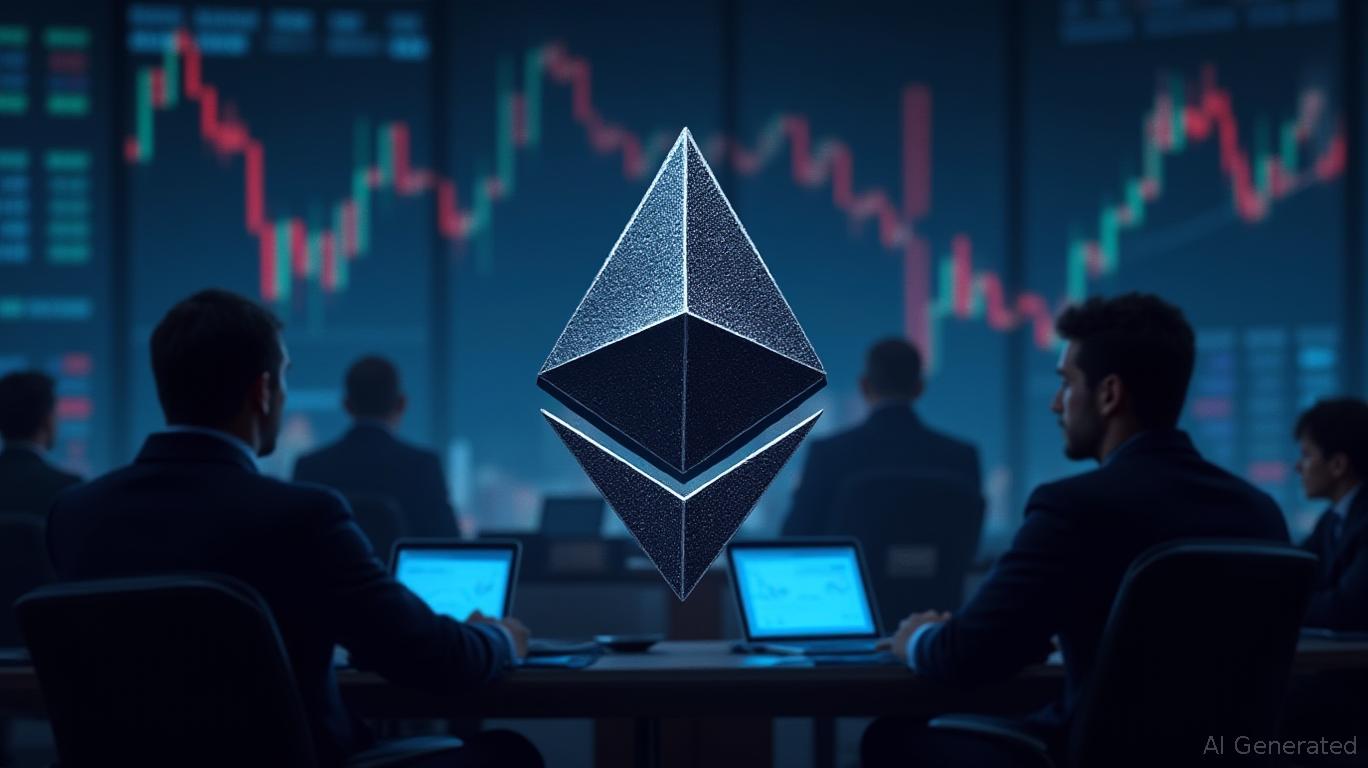Deutsche Telekom's Blockchain Initiative: Safeguarding the Decentralized Future of AI
- Deutsche Telekom joins Theta Network as an enterprise validator, the first telecom company to operate a node on the blockchain platform. - Theta's EdgeCloud leverages distributed GPU resources to enable low-latency AI, media, and real-time data processing applications. - Telekom's blockchain engagement includes Ethereum/Polkadot validation and Bitcoin mining, reflecting its Web3 infrastructure strategy. - The partnership highlights blockchain's shift toward enterprise infrastructure, offering cost-effect
Deutsche Telekom AG, recognized as one of the leading global telecommunications companies, has become an enterprise validator on
Theta Network’s hybrid cloud-edge solution, Theta EdgeCloud, utilizes distributed GPU power to lower latency and expenses for applications like generative AI, 3D rendering, and live data processing. Deutsche Telekom’s involvement highlights the increasing intersection between telecom infrastructure and blockchain, especially in AI-powered edge computing. Dirk Roeder, who leads Telekom MMS Web3 Infrastructure and Solutions, pointed out that Theta’s decentralized system fits the company’s emphasis on “reliable, secure infrastructure,” and mentioned that the collaboration “opens up new opportunities in AI and media innovation,” as reported by Investing.com.

Deutsche Telekom’s engagement with blockchain is not unprecedented. Through its subsidiary Deutsche Telekom MMS, the company has previously run validator nodes for
Theta Labs, the team behind Theta Network, stressed the strategic value of Deutsche Telekom’s participation. CEO Mitch Liu remarked that the telecom’s move to operate a validator node “demonstrates Theta’s rising significance as a leader in decentralized cloud services for AI, media, and entertainment,” according to Investing.com. The platform’s hybrid approach, which merges community-operated edge nodes with cloud partners, is intended to make high-performance computing more accessible, as reported by
This alliance also marks a broader trend in how corporations are embracing decentralized technologies. As the costs of cloud computing climb alongside the growing need for AI, platforms like Theta provide scalable and economical alternatives. Deutsche Telekom’s validator address—0x5e4a3f43c34f66768961f73eccef984b71bb692a—is already live on the Theta blockchain, reflecting the company’s transparent approach, as noted by Investing.com. Experts believe that such partnerships could accelerate enterprise adoption, especially in sectors that demand high-performance, low-latency computing, according to Coinotag.
Disclaimer: The content of this article solely reflects the author's opinion and does not represent the platform in any capacity. This article is not intended to serve as a reference for making investment decisions.
You may also like
Bitcoin Updates: Hong Kong's Cryptocurrency Regulations Ignite Clash Between Digital Assets and Conventional Banking
- Franklin Templeton CEO Jenny Johnson highlights crypto's disruptive potential, framing it as a bridge to traditional finance amid institutional adoption and Bitcoin's "digital gold" appeal. - Hong Kong's SFC reforms enable crypto exchanges to access global liquidity pools, accelerating blockchain integration while maintaining investor protections under Fintech Week 2025 initiatives. - Market volatility contrasts with institutional optimism: Coinbase reports 25% Q3 revenue growth, while Saylor predicts $1

Ethereum News Today: Ethereum's 3-Day Drop: Will the Next Move Be Upward or Signal a Downtrend?

FTSE Russell and Chainlink Transform Markets by Integrating Conventional and DeFi Indices
- FTSE Russell partners with Chainlink to publish market indices onchain via DataLink, bridging traditional and decentralized finance. - The collaboration provides real-time, tamper-proof data for indices like Russell 1000 and FTSE 100 across 50+ blockchains, supporting $18T AUM. - This initiative accelerates tokenized asset adoption and enables next-gen financial products, leveraging Chainlink's $25T-secured infrastructure for institutional-grade trust. - By democratizing access to benchmarks, the partner

South Korea's Rapid Growth in Stablecoins Meets Regulatory Hesitation
- South Korea is rising as a key stablecoin hub, balancing innovation with regulatory scrutiny as Tether and local projects reshape global finance. - Tether now holds $135B in U.S. Treasuries, surpassing nations like South Korea and UAE, positioning it as a major Treasury market influencer. - BDACS launched KRW1, a won-pegged stablecoin on Circle's Arc blockchain, aiming to integrate Korean businesses into global blockchain networks. - Bank of Korea warns of depegging risks for private stablecoins, contras
